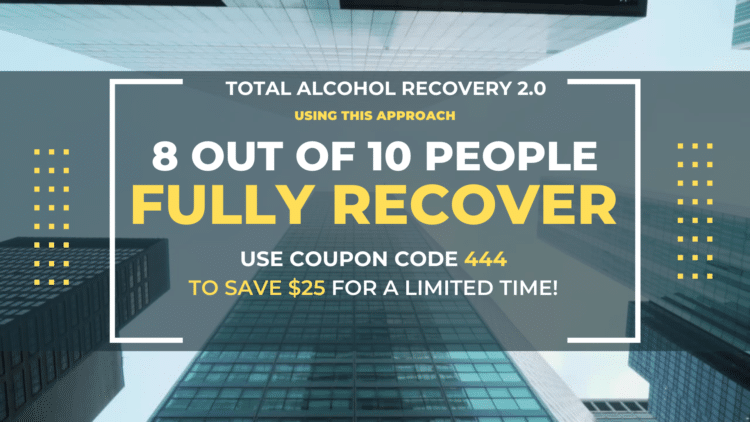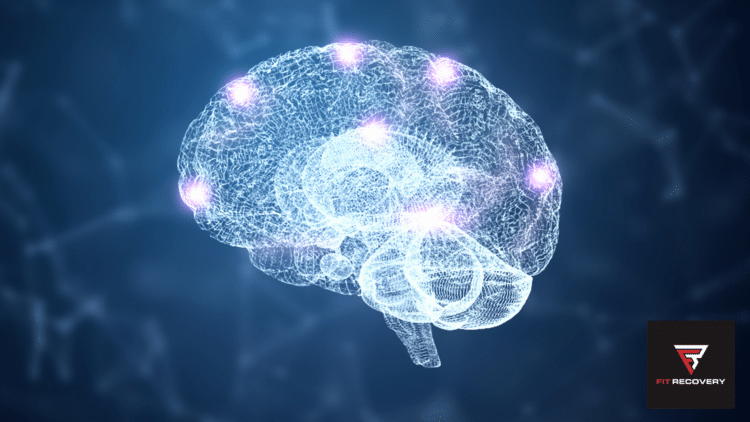
Many people suffering from alcoholism spend years or longer trying to get a solid 30 days of sobriety. They may even quit several times but these are often quitting episodes of only days to a couple of weeks. And if they make it past 30 days, there is still a very high chance that within months or years they’ll relapse back onto alcohol.
Why?
Alcohol use disorder (AUD) is a chronic relapsing condition for most individuals.
The negative changes to the brain from the prolonged administration of alcohol often result in:
- Neurotransmitter imbalances
- Erosion of the prefrontal cortex (responsible for decision-making)
- Dysregulation of the dopamine (pleasure-reward) system
- Hijacking of the midbrain (unconscious-survival)
- Negative changes due to neuroplasticity
- Glutamate toxicity
- Micronutrient deficits
- Endocrine dysfunction
- Adrenal dysfunction
- NAD+ deficiency syndrome
Alcohol Detox & Recovery
Depending on whether a person has mild, moderate, or severe AUD these symptoms can vary from person to person in quantity, quality, and intensity.
It’s unfortunate that most individuals who begin drinking alcohol regularly aren’t aware of the many devastating negative consequences of prolonged alcohol use… but that’s the reality.
The good news is that all of these can be corrected and restored to normal (or even better than ever).
This takes time, patience, diligence, commitment, resolve, focus, determination, resilience, self-compassion, and resourcefulness.
Of course, one also needs an alcohol treatment plan as well as a plan for getting through alcohol detoxification and healing the brain and body with biochemical optimization, but that’s why Chris Scott created the groundbreaking program Total Alcohol Recovery 2.0 (Save $25 when you enroll by using coupon code 444).
It’s a go-at-your-own-pace video course with 20+ hours of step-by-step alcohol detox and recovery videos. Using the approach in Total Alcohol Recovery 2.0, 8 out of 10 people fully recover.

The purpose of this article is to target the resources Focus & Determination… which I believe are missing ingredients to the personal alcohol recovery puzzles of many individuals.
Determination
There are two types of people that want to quit drinking. The first type wants to quit, however, they don’t want it enough to be able to successfully quit alcohol for good.
The second type wants to quit drinking and they do want it bad enough to successfully quit for good.
Determination is “a quality that makes you continue trying to do or achieve something that is difficult.”
I can usually tell on the first private coaching call with a new client how determined they are. It’s important to note that it usually takes a 10/10 level of determination to overcome alcohol addiction. A 9/10 level of determination is still good but it’s not always good enough to see the challenge through long-term.
Luckily, there are ways to build higher levels of determination, and the best way I know of is to invest just 3-5 minutes every morning visualizing yourself alcohol-free, happy, healthy, confident, energized, and enjoying life to the fullest.

Another helpful tool for increasing determination is to write a list of everything alcohol has cost you in the following areas:
- Mental/emotional health
- Physical health
- Spiritual health
- Relationships
- Finances
- Recreation/hobbies
- Personal growth
- Goal achievement
- Peace of mind
Another important thing I’ve noticed is that people who believe in themselves and believe they can do it have much higher levels of determination than those without belief in themselves. Our beliefs shape our lives in a powerful way.
An excellent video I highly recommend on optimizing your thoughts and beliefs (featuring Dr. Joe Dispenza) is free on YouTube here (and has more than 15 million views).
Focus
In our current Age of Information, distraction, and over-stimulation, there seems to be an epidemic of people with ‘pathological preoccupation’ — meaning most people’s attention spans are not up to par with being able to accomplish big goals (such as long-term recovery from alcoholism).
Pathological preoccupation usually leads to slow progress in recovering from alcohol addiction at best and backward momentum at worst.
To successfully quit drinking and get 30 days of sobriety it takes the exact opposite (aka the ‘antithesis’), which is ‘Absolute Focus’ — a skill that most successful people have developed over time.
Here are some tips for getting more focused:
- Delete all non-essential apps off your phone
- Take a break from social media
- Check email 2-3x a day and no more
- Clean and organize your home and get rid of clutter
- Clean your vehicle inside and out
- Adopt the habit of making your bed every morning
- End your morning shower with freezing cold water for 1-2 minutes
- Start using a day planner and maintain consistency
- Use a nootropic formula to super-boost natural focus and mental power (Neura-Vie is the new one I’m using and love and Quali-Mind is another one I’ve used and like)
- Unplug your television and keep the power cord in another room until you want to watch something
- Improve your diet and cut out some of the crap
- Drink more water
- Focus on healthy sleep habits
Finally, a great way to stay super-focused is to write down why you want to quit drinking and the date you plan to discontinue alcohol and place this paper on your bathroom mirror where you’ll see it every morning and night at the minimum.
Our brains are naturally goal-seeking machines.
The reticular activating system (RAS) in the brain works like a missile that can course correct when its target moves or changes. By reviewing your ideal outcome (of quitting alcohol) several times a day every single day, you keep your RAS focused on the target.

This makes it way easier to stay focused on your long-range goal of quitting. Plus… it can also build more determination (double benefits!).
Key Concepts
- Alcohol use disorder (AUD) is a chronic relapsing condition — but it doesn’t have to be as using the right strategies and tactics you can quit drinking and never relapse again
- Determination is a powerful resource needed to be able to quit and there are proven ways to enhance this internal resource (eg daily visualization of yourself living an alcohol-free and awesome life and writing a list of everything alcoholism has cost you in the important domains of life)
- Focus is another extraordinary tool for quitting that is often lacking in most people’s abilities in our current age of digital over-stimulation and there are proven ways to enhance focus (eg decluttering your home, taking a break from social media, taking nootropics, using a planner, etc.)
- You can and should harness the power of your brain’s reticular activating system (RAS) by writing out your ideal outcome of being alcohol-free with a concrete date to quit — then taping it up on your bathroom mirror where you’ll see it every morning and night
- Biochemical optimization is a missing link in the treatment plans of most individuals trying to quit drinking — Using the biochemical optimization approach in Total Alcohol Recovery 2.0, 8 out of 10 people fully recover (save $25 at checkout by entering coupon code 444)
I hope these practical tips are of value to you!
And please remember that reading is great… but it’s the application of what you learn that helps you the most.
Learning leads to knowledge but applying that knowledge leads to positive change.





